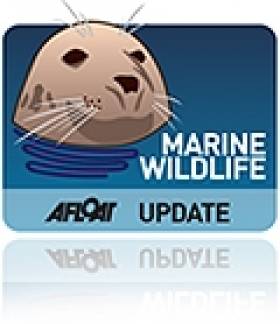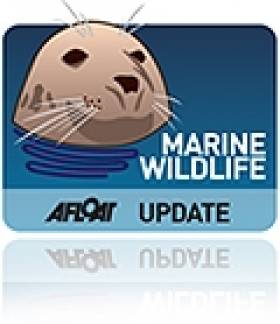Displaying items by tag: rare
'Very Rare' Sighting of Albatross in Irish Skies
#MARINE WILDLIFE - Staff and students from the Galway-Mayo Institute of Technology spotted an black-browed albatross in what was a "very rare" sighting of the bird in Ireland's skies, The Irish Times reports.
The group was on board the State marine research vessel Celtic Explorer off the southwest coast when they witnessed the albatross, also known as a Mollymawk, which is noted for its dark eye stripe.
The black-browed albatross is normally restricted to the Southern Hemisphere, but Birdwatch Ireland's Niall Hatch said it has been spotted from headlands in Ireland in the past.
As previously reported on Afloat.ie, the GMIT group were among a party of 20 scientists from Ireland, Nothern Ireland and Scotland carrying out a study of whales, dolphins, seabirds and plankton in the Atlantic.
Blue Lobster a Big Surprise for Clare Couple
A rare blue lobster has become and unlikely tourist attraction in Co Clare, The Irish Times reports.
The lobster - its blue hue believed to be caused by a genetic trait similar to albinism in humans - avoided the cooking pot and now takes pride of place at Martina Sweeney's seafood shop in New Quay.
Her fisherman husband Gerry, who caught the crustacean, said: "I’ve been fishing for 30 years and have never seen anything like this."
It's believed that only one in three million lobsters is blue. Due to their bright colouring they are often prey for other sea creatures.

























































